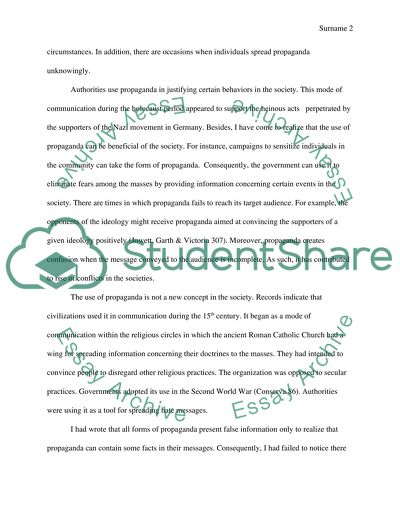Cite this document
(“Propaganda Essay Example | Topics and Well Written Essays - 1500 words - 1”, n.d.)
Retrieved from https://studentshare.org/miscellaneous/1611725-propaganda
Retrieved from https://studentshare.org/miscellaneous/1611725-propaganda
(Propaganda Essay Example | Topics and Well Written Essays - 1500 Words - 1)
https://studentshare.org/miscellaneous/1611725-propaganda.
https://studentshare.org/miscellaneous/1611725-propaganda.
“Propaganda Essay Example | Topics and Well Written Essays - 1500 Words - 1”, n.d. https://studentshare.org/miscellaneous/1611725-propaganda.


